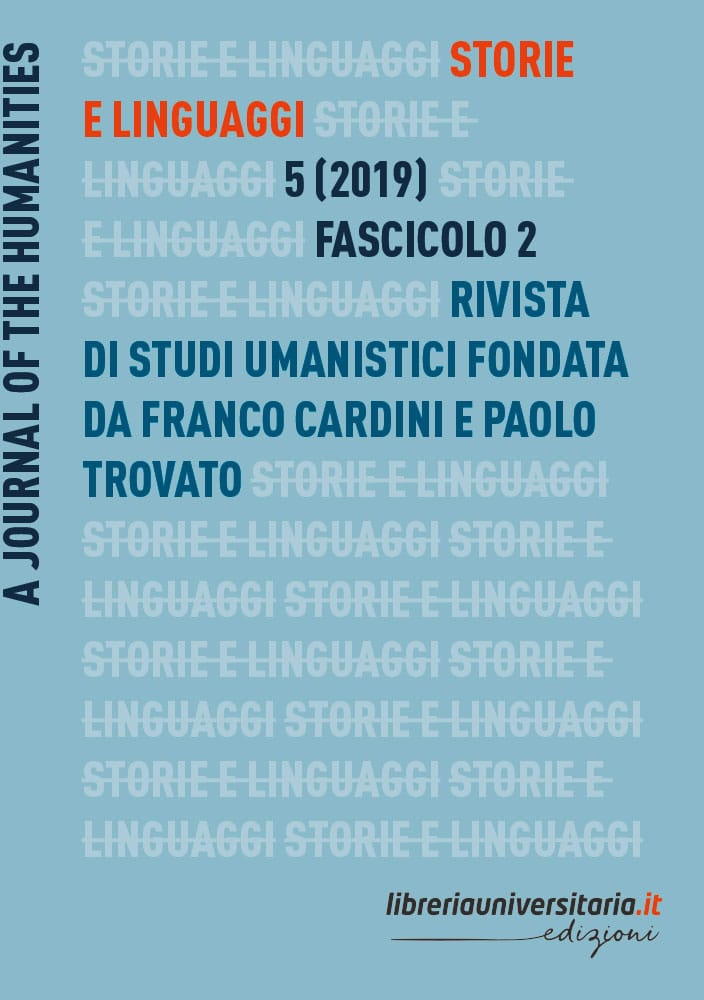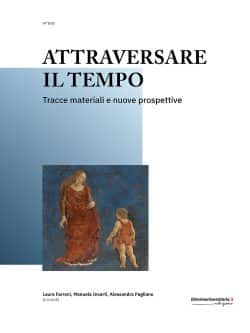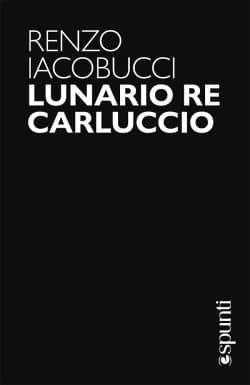Indice
A comparison between the text of the Acts of the Apostles in the standard editions NA28/UBS5 and in the recent edition in the ECM (Editio Critica Maior), containing a short overview of the Coherence-Based Genealogical Method, which is fundamental to
ECM, a discussion about the importance of the Church Fathers with John Chrysostom as an example, and a discussion about the 52 passages where the editions differ. Conclusion: the new text is not decidedly better, but the presentation of the tradition is excellent.
n this paper the author analyzes the Italian vernacular glosses which pertain to the semantical fields of cloths, mantels, mats and footwears in the Talmudical and encyclopaedical dictionary Arukh (by r. Natan ben Yechi’el of Rome, xi-xii sec.).
The vernacular glosses are: barda, bardella, buda, cappa, cortina, cozzo, dalmateca, feltro, lena, lenola, mappulu, natta, osi, peduli, plaione, pragella, sabani, sindene, tappetu, tobaglia.
In these terms the interweaving of Semitic and Romance languages, of Latin and Greek, and even of Germanic languages, is indeed very tight, and it represents to us faithfully the multilinguals aspects of the linguistic reality which likely characterized the Mediterranean society of this period.
This paper discusses the dates of Dante’s Epistles proposed in recent contributions of Mirko Tavoni (2014, 2020) on the early years of Dante’s exile and looks through his authoritative attempt to postpone the second epistle to 1305 ca., that is, during the composition of De vulgari Eloquentia’s second book. Albeit Tavoni provides his proposal with an interesting literary background, this new date doesn’t seem to stand both from a biographical and a historical point of view. A thorough research, aiming to gather all available pieces of evidence, including Dante’s texts, leads us to a different picture about the time of the first and second Dante’s epistle, and the real timeline of his stays in Verona.
Spinoza’s personal library included a copy of Petrarch’s De vita solitaria. The explanations for this unexpected holding have varied: Spinoza read it to relieve his depression or to understand his state of isolation. These explanations are based on the assumption that “solitaria” means “isolated”; but in fact Petrarch praises solitude (not loneliness) as a form of freedom that allows him to enjoy leaving in tune with nature, time and his one self, just as Spinoza conceives a free life in total harmony with Nature. The essay stresses the similarities between some passages of De vita solitaria and Spinoza’s De intellectus emendatione.
The last decades of the 19th century marked in Dante’s studies the fundamental moment for establishing the method of publishing the Commedia. Since the size of the poem (thousands of verses and hundreds of manuscripts) made it impossible to make a complete collation, the works of Witte and Moore identified a way in choosing some «test-passages» to determine a first selection. It was obviously only a preliminary operation to choose the best manuscripts on which to base the edition. The first experiments were disappointing and at the same point of crisis came the Italian scholar Giuseppe Vandelli, to whom the Società Dantesca Italiana had entrusted the edition of the poem for the Centenary of 1921. From Vandelli’s papers the reader can see the tension of the problem: on the one hand, he continued his collection by «test-passages»; on the other, he directed his attention more and more towards a few older manuscripts on which he would have finally based his edition. From this methodological crisis derives the diversification of the method undertaken by scholars in the 20th and 21st centuries: the trust in the criterion of the antiquiores followed by Giorgio Petrocchi in 1966 and the need for a return to the whole tradition proposed – in different times and ways – by Federico Sanguineti in 2001 and Paolo Trovato in 2007. The present work tries to highlight the remote causes of this situation.
This paper explores the nascent and inextricable link between language, humour and radical political movements in digital spaces. Language, as it evolves online, is deeply entrenched in the values, emotions and goals of political communities and highlights the inception of what can be defined as a convergence between the digital and the material world. The Italian radical right is at the forefront of this process with three main actors: The Northern League, Casa Pound and Forza Nuova. While the Northern League takes on the values of a conservative party in a way that has never been seen before, the latter two are renewing the media strategies of the radical right. In this paper, based upon a robust sample of tweets collected in the week around the hate crime committed by Luca Traini in Macerata, I will examine if, and if so how, digital communication of the Northern League on the one hand, and of Casa Pound and Forza Nuova on the other, are interconnected both in linguistic and emotional terms. Specifically, expanding on the work of Christie Davies as well as applying recent findings on disgust, I will reflect on how humour, as a moral occurrence, can offer new insights on overlooked cultural and humour-based aspects of linguistic processes online.





